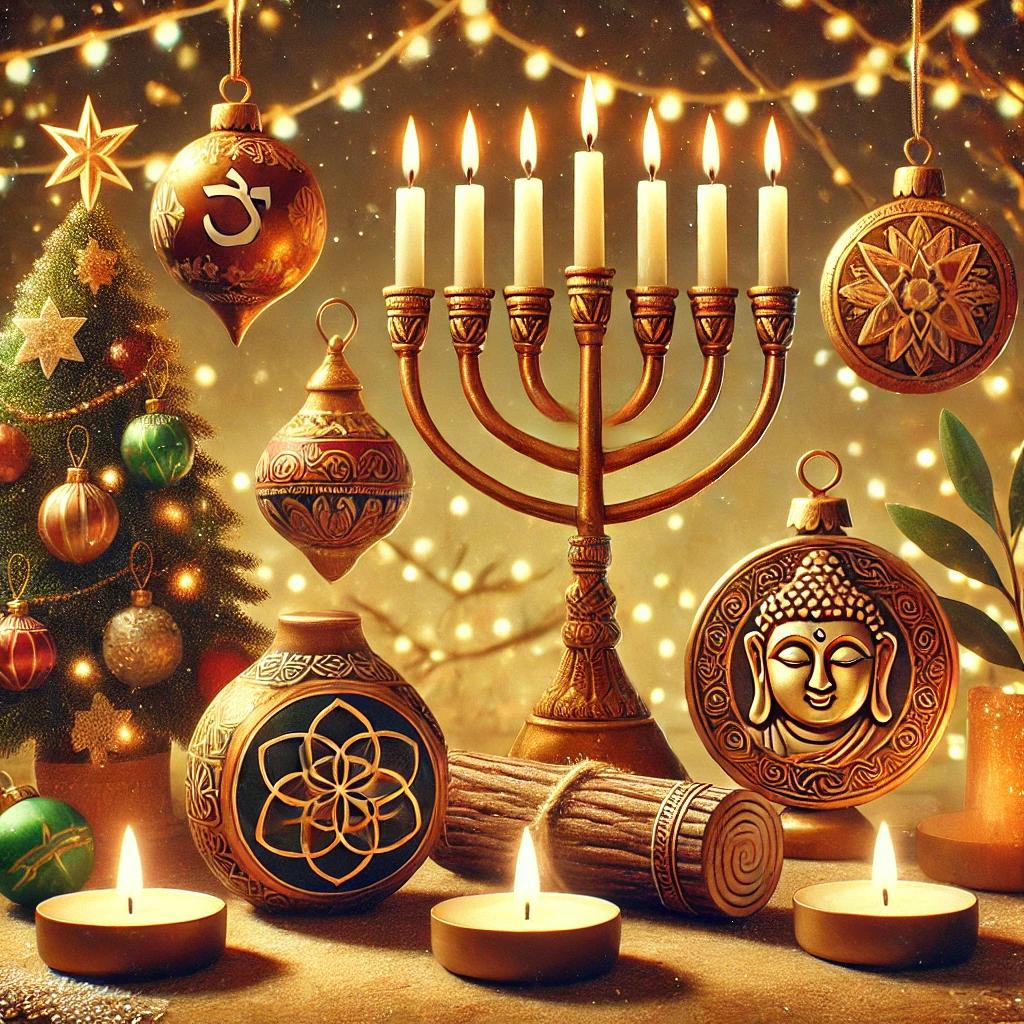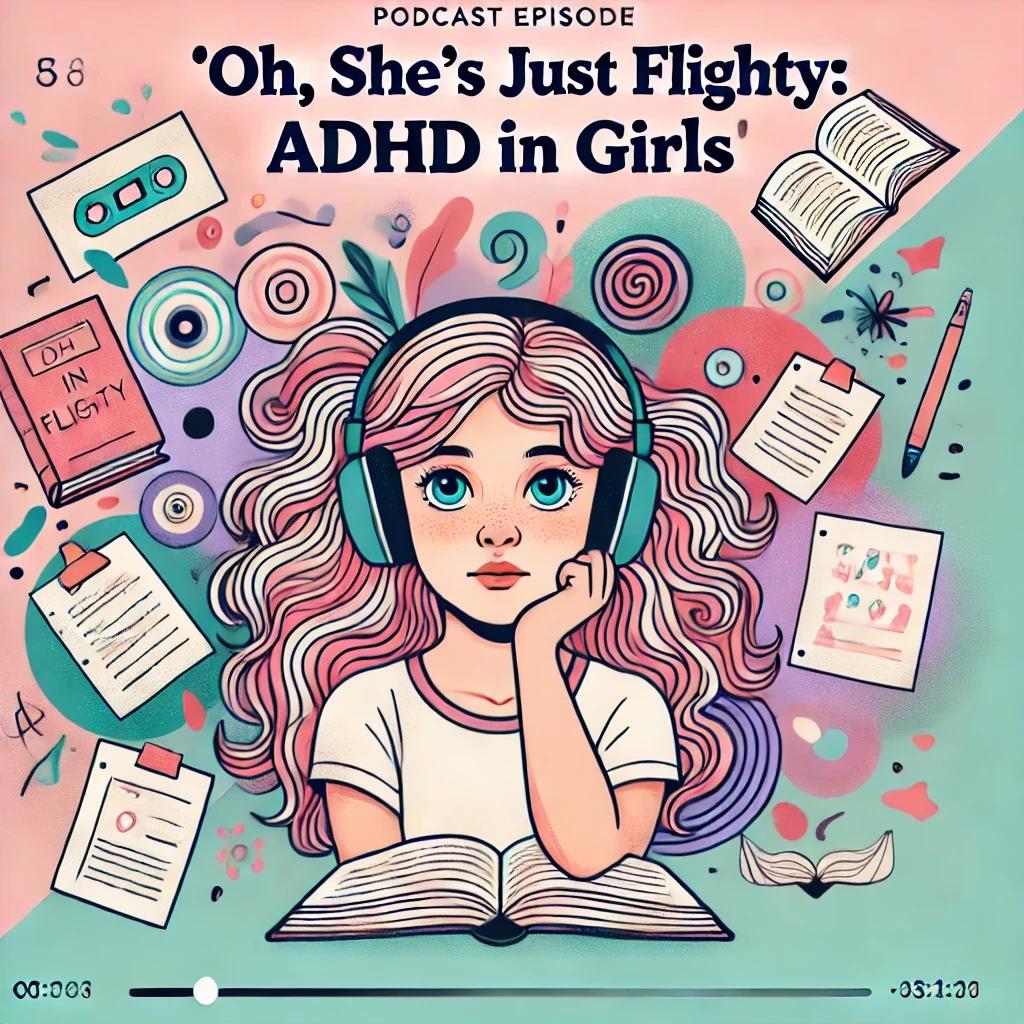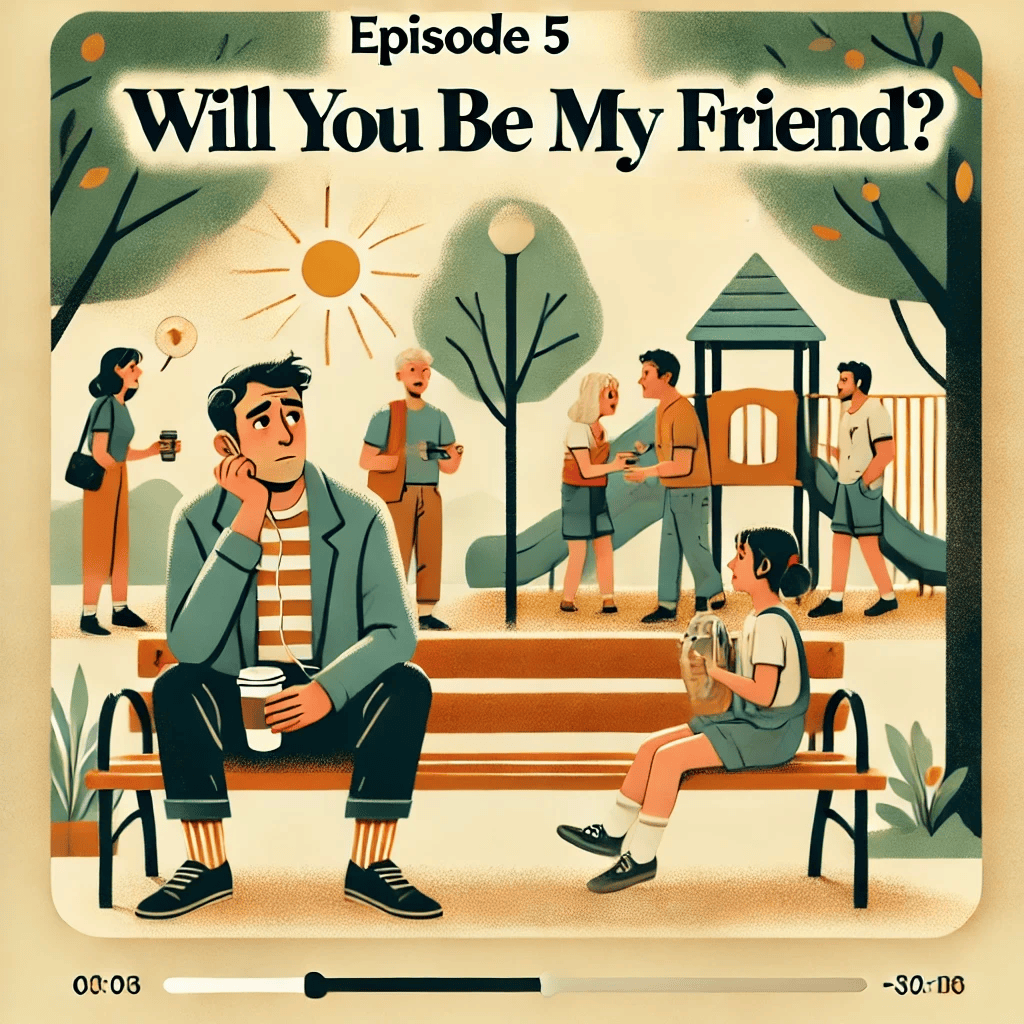Episode Transcript
[00:00:00] Foreign welcome to 45 left to right podcast. I was not going to do a new episode before the start of the new year, but I got some new recording equipment and I really wanted to test it out and it's really confusing. So this is sort of a practice run and hopefully, you know, it looks good and it sounds good. Um, so I was also inspired.
[00:00:50] We went to Mexico for Thanksgiving. We decided to forego the dry turkey and cranky relatives sometimes they are, and decided, just the three of us, to go down close to Ensenada, Mexico and have a very non traditional Thanksgiving. We had an amazing time. Ensenada is in the Baja Peninsula and it's only about four hours from our house. We had a little bun bungalow that was right on the beach. And though it was November and a little chilly, we still got to dig in the sand and, you know, pick up shells and have delicious seafood. I'm talking.
[00:01:42] It was so good.
[00:01:44] We just, we had a wonderful time. A lot, I think Mexico gets a bad rap and certainly there are lots of issues in Mexico and a lot of crime, but where we were in the Baja Peninsula, it was lovely. The Mexican people were warm and friendly and helpful. And I think this might be our new Thanksgiving tradition. And it got me just thinking about how different people celebrate the holidays.
[00:02:18] I mean, normally we do spend time with. Especially since we live away from our families, we spend Thanksgiving with really dear friends and we have a wonderful time, no doubt. But I don't know, we just. Especially since Jeff's parents have passed away, we are looking for different ways and, I don't know, sort of reclaim the holiday as something really wonderful. Plus, we don't normally get a family vacation just the three of us, and this is just kind of perfect timing for us. But anyway, I. I got to thinking about how a lot of people celebrate the holidays in completely different ways than what you would say would be the standard thing. And here we are in December. Christmas is just a week away from this recording. And I just thought, you know, how do people celebrate Christmas? Or I'm sorry, how do people celebrate the holidays in December?
[00:03:29] And so that's kind of what we're going to talk about today. Now, I grew up in the Southern Baptist Church, and it was a pretty progressive church for being a Southern Baptist church.
[00:03:46] You know, kind of came of age in the 1990s in the church. I had a wonderful time and a wonderful experience in general. But I remember in the 90s, that's sort of when the idea of the War on Christmas happened, especially evangelical Christians became upset when, you know, let's say they went to a store and a cashier said Happy Holidays instead of Merry Christmas. They were kind of led to believe that this so called woke, or at the time, politically correct culture was coming after their ability to celebrate Christmas and would even, I would hear people weaponize the term Merry Christmas. You know, let's say they went to a store and they were done with their transaction and the cashier said Happy Holidays. And they'd be like, Merry Christmas. You know, it, it was kind of crazy. And I will say I, I did buy into that a good amount.
[00:04:55] I, I don't know, I even, even now when someone sends a Christmas card, I'll note if it says Happy Holidays or Merry Christmas.
[00:05:08] But as I got at, you know, got out of, kind of went into college and started thinking more broadly and I guess my, my brain was kind of open to the idea that there are lots of different religions and cultures in the world. And then I joined the army, which is very diverse.
[00:05:34] I think a lot. I know going in, I was kind of expecting it to be all white men and a few women sprinkled around. Not sure why I got that idea in my head, but I serve with people of all different religions and cultures. I serve with people who weren't even citizens of the United States who were still serving just a really diverse organization. And then I spent a year in a predominantly Muslim country and I started, I don't know, I just opened my eyes to the idea that, hey, guess what? There's lots of different people in this world that celebrate, you know, differently in.
[00:06:21] I'm just gonna focus on the month of December, but generally celebrate different things and in different ways. And so I guess now I'm more open to that idea. But I also didn't educate myself or haven't educated myself on all the different celebrations that there are in December. So that's what we're going to talk about today. And I hope you enjoy.
[00:06:49] Happy Holidays.
[00:07:07] Welcome back to 45 Left to Right podcast. So I want to get into a few religions other than Christianity and how they celebrate in the month of December.
[00:07:22] I want to start real quick with an overview of the religious breakup breakdown in the United States and then also in the world. This is According to the Gallup Poll, United States is predominantly Christian at 68%, 33% of those identify as Protestant, 22% Catholic, and 13% other.
[00:07:50] Now, the rest of the country, basically 7% are non Christian, 2% are Jewish, 1% Muslim, 1% Buddhist, and 1% Hindu. And then this was surprising to me. 22% have no religious preference. I thought that was pretty high number. Be honest.
[00:08:16] Now, throughout the world, the ratios are different. Now, Christianity is still the number one religion in the world, with 31.1% of the world's population identifying as Christian.
[00:08:34] Islam comes in at number two, at 24.9% of the world's population.
[00:08:41] Number three is irreligion, which I'm assuming is no religious preference, and that's 15.6%.
[00:08:52] Number four is Hinduism at 15.2% and then Buddhism at 6.6%. I was surprised the Judaism wasn't in the top five. I believe it was number seven.
[00:09:07] So that I found that interesting.
[00:09:10] And just a quick little anecdote. I served in Iraq in the Kurdish part and in the Erbil area, which has about a million Kurds. Now, I assumed honestly that everyone was Muslim in that area. I was really not knowledgeable before I got there, but it was predominantly Muslim. But there was actually a decent amount of people who were Christian. They were called Chaldean Christian, and they had their own little section of the city. They were. They offered more things that are considered forbidden in Islam. Like women wore Western clothes, women could drive, and also you could buy alcohol there. Don't ask me how I knew that, but it was really different. Okay, so even though Judaism is the number seven, most common, I'm not sure how to say it, but most celebrated religion in the world, in the United States, it's number two.
[00:10:26] So in the month of December, the Jewish people celebrate Hanukkah. So I'm going to go through what that is and why they celebrate it. Now, Hanukkah, I used to think it was always in the beginning part of December. But they celebrate or they use a different calendar for these holidays. So, um, it changes. So this year it starts Dec. 25 and ends Jan. 2. Hanukkah is in the Jewish faith, is also called the Festival of Lights. And we'll go through why here in a sec. Now, a little bit of history of why the Jewish people celebrate hanukkah. So over 2,000 years ago, during the Seleucid Empire in the second century, there was a cruel Greek Syrian leader called Antiochus iv. I practiced that epiphanies. He tried to impose his pagan beliefs on the Jewish people. And he basically would force them to worship Zeus and other gods. And that required animal sacrifice. So he made them do that in their own temple, desecrating the temple by slaughtering pigs, which, if you know anything about the Jewish Faith.
[00:11:58] Pork is considered unclean, and they don't eat it. They don't, you know, involve themselves with it. So this was a real assault to their temple and to their faith.
[00:12:11] Now, there was a Jewish group of fighters called the Maccabees, and they revolted against Antiochus. And it was a three year battle, but they eventually reclaimed Jerusalem. Now, the Maccabees went in there and they purified and rededicated the holy temple of Jerusalem. Bite. Hamikadash is what they call it. And they, you know, cleaned it up, they blessed it, and they had only one jug of oil that was blessed by the high priest. And it was only enough for one night, but they needed it for longer until they could get resupplied with more oil that was blessed.
[00:13:07] But this oil that was supposed to last only one night lasted eight nights. And it allowed time for the, you know, more oil to be provided for their temple. So what Hanukkah does is it commemorates the Maccabees and their resilience and the miracle of the light lasting as long as they needed it. And it's a symbol of strength and tenacity and hope.
[00:13:42] Now, there are several traditions in Hanukkah that sort of represent this.
[00:13:49] The first one that I think is most recognizable is lighting the menorah. Now, a menorah is a candelabrum with nine branches, and the middle is what they call the shamish, and it is the candle used to light all the other lights. Now, the menorah is usually placed in a very visible doorway or window sill to basically symbolize, as they say, spreading of God's light. And you can imagine, considering the Jewish history and how much they have been kind of tried to be conquered, that putting that menorah in the. In a visible place could be seen as an act of rebellion. You know, it's like, this is our faith and this is what I. We're celebrating.
[00:14:49] I could go more into that, but kind of an interesting thing.
[00:14:54] So other things they do, they read scripture, they recite psalms, they sing hymns, and they give to charities, which is kind of a similar. In the similar light as Christmas, they eat foods fried in oil, like latkes, which are potato pancakes.
[00:15:15] They. The children play with a dreidel, which is like a little, I don't know, a top. Like a top toy.
[00:15:26] And then they give gifts. And I used to be a little jealous of my friends who were Jewish growing up because they got eight days of gifts. I only got one stinking day, but they got eight days of Gifts, and they were given money, which they call guilt.
[00:15:44] Families celebrate the gift giving in different ways. Uh, but I think that's more traditional.
[00:15:51] So I thought that was kind of interesting. That is a little brief overview of Hanukkah.
[00:15:57] Now, I'd like to note that Islam is the next practiced religion in the United States.
[00:16:05] Um, but they don't really have any major celebrations in December. There's some differences according to whether you're Shia or Sunni or other types of Muslims, but generally they don't have any. Those aren't any of their major holidays. So I'm gonna move on to Bodhi Day, which is a day that the Buddhists celebrate. Now, this year, it was on December 8th. And they do use a different calendar, but if you're using the western calendar, it's December 8th. It's usually between the winter solstice and the lunar new year.
[00:16:49] All right. There are approximately 3 million Buddhists living in the United States and 535 million Buddhists in the world. It's the fourth largest Buddha religion in the world.
[00:17:07] Now, Bodhi Day, what it is, it basically commemorates Gata Buddha attaining enlightenment 2600 years ago.
[00:17:21] Basically, he.
[00:17:23] There's a few different.
[00:17:27] What's the word? Like, stories on what he did, but basically he sat under a Bodhi tree and meditated and fasted until he could understand the root of suffering and then how to be free of it.
[00:17:46] It's basically the day he became Buddha.
[00:17:51] Now, Bodhi Day is celebrated predominantly in the Mahayana Buddhist traditions, which are including Zen and Pure Land schools. And that's mostly in China, Korea, Japan, Vietnam, and the Philippines.
[00:18:09] Now, these are some things that they do to celebrate Bodhi Day. Um, it does vary among the Buddhist sects and the kind of. The different stories and traditions about what he did. But here are some kind of common things they do. They pray and read scriptures. They. This one will be familiar. Decorate trees with lights or candles, which symbolizes enlightenment. They share special family meals. They do, like, acts of kindness and charity to reflect Buddha's teachings and also improve karma.
[00:18:54] They meditate, they chant Buddhist texts. And then some of the foods they they use may include tea cake, rice with milk, and that symbolizes the sustenance during Buddha's final quest for enlightenment. Pretty interesting.
[00:19:16] All right, so the last religious celebration that I'm going to talk about before going into some others is the Hindu celebration of Pancha, or, sorry, Poucha ganapati, that is December 21st through the 25th.
[00:19:39] And it's often kind of described. I'm sure, this is more of a Western way of describing it. It's the Hindu equival equivalent to Christmas. There are approximately two and a half million Hindus living in the United States and 1.2 billion worldwide.
[00:20:02] So basically this day celebrates Lord Ganesha, which is the elephant headed deity of culture and new beginnings.
[00:20:12] And the focus is on making amends and fostering joy and harmony amount among family, friends and communities.
[00:20:23] Now Hindu children receive gifts for over five days.
[00:20:29] I love that.
[00:20:32] And so here are some of the traditions they have. Again, it's very similar to how we celebrate Christmas. Some of the same traditions. They decorate their home and shrines daily with colorful lights and festoons and cloth. They offer sweets, fruits and incense to Lord Ganapati, often by children. And then they sing chants and songs.
[00:21:02] Now this is observed both as a religious and a secular holiday.
[00:21:10] Um, I think that Hindu children were kind of feeling left out because here in the month of December, especially if you're living well, I guess worldwide, but let me speak to the United States specifically. You know, kids are getting presents and there's trees and there's singing and all of that. And they were like, what about us? Well, so that's why they call it the Hindu Christmas. But also a lot of people who don't identify with, with Christianity at all sort of make this a secular holiday, you know, if they are particularly don't want to celebrate Christmas. So I'm gonna take a quick break and then talk about some non religious ways people celebrate in December.
[00:22:15] Welcome back to 45 Left to Right podcast. Hope you enjoy learning about some religious celebrations that happen in December. But now I want to go into some non religious celebrations that happen in the month of December. And the first I'm going to go through is Kwanzaa. Now I remember Kwanzaa's been around since the 19, late 1960s, but I remember had to have been late 90s, early 2000s when Kwanzaa became, I guess more in the awareness of the general population in America. And just like anything new, people were like, what's Kwanzaa and what's this? And this is being shoved down my throat and all of those sort of things. But it is a legitimate way of how African Americans in the United States, some of them celebrate in the month of December. Now let's go through it. So Kwanzaa this year is between is December 26th through January 1st. So it's several days. And basically it is a celebration of African American culture. It was created by an activist by the name of milana Karenga. In 1966, after the Watts police riots, which was in Los Angeles. And it was basically a response against that standard white Christian version of Christmas.
[00:23:57] It is non Christian, largely African American, and it originally was meant to be an alternative to Christmas. But a lot of African Americans also wanted to celebrate Christmas. So now it's usually alongside of Christmas. Um, and actually the. The activists. Karenga actually moderated his beliefs later. Later on for this to be just a way for African Americans to celebrate Christmas. Christmas, whether they were Christian or not.
[00:24:37] So for Kwanzaa, there are seven principles, and I am going to use the English words because I really don't want to butcher the language.
[00:24:50] So the first is unity. And basically it's to strive for unity in your family, in your community, in your nation, and within your race. Number two is self determination. It is to basically define and name ourselves, but also speak for ourselves.
[00:25:16] Number three, collective work and responsibility. And this is to build the community and maintain the community together and with each other.
[00:25:28] Basically solve the community's problems together.
[00:25:33] The next is cooperative economics, Similar to the community. It's to build and maintain our own stores, our own businesses, and support each other for success.
[00:25:49] All right, next is purpose. And this is basically to adopt a vocation that develops the community and has a greater purpose.
[00:26:06] Number six is creativity.
[00:26:10] So basically to use our ideas to create a community that's better than when we moved in or when we, you know, first came into the community.
[00:26:24] And then number seven is faith. And this is not a religious faith. It is basically a belief with all of your hearts to kind of a belief in your parents, in your community and your leaders, and then in the righteousness of your struggle.
[00:26:50] So there are some standard practices of Kwanza. Um, you know, it basically involves families decorating their households with art and colorful African cloth, and then also provide fresh fruits. And then women wear cat cans and children. You know, I noticed this with all of the ceremonies, whether religious or. Or the celebrations, whether religious or not, that children are always involved. And children in these ceremonies give respect. They're involved to give respect and gratitude to their ancestors. And these include drumming and music, drinking out of a common chalice, and then reading of the African pledge and principles of blackness.
[00:27:43] Now, if you know someone who celebrates Kwanzaa, you can respect them. And the greeting for each day, which is habari gani, and that is Swahili for how are you?
[00:28:00] Now, on the sixth day of Kwanzaa, they have a feast of faith, or what they call karamu ya Imani. And Kwanzaa is mostly celebrated in the United States, but they also celebrate it a lot in Jamaica, France, Canada and Brazil. So that is a little bit about Kwanzaa.
[00:28:26] All right, so the next kind of part I'm gonna do again, these are non religious celebrations.
[00:28:34] A lot of these celebrations. And the reason there are so many celebrations in December is because it is the winter solstice. And that throughout the all of humanity, winter solstice is a pivotal moment in the year.
[00:28:54] All right, so winter solstice is December 21st through December 22nd. The first kind of category about sort of associated with winter solstice is Yule. Now Yule basically originated over 1500 years ago and it is of course a midwinter festival. And it was originally celebrated by the Germanic pagans.
[00:29:26] Basically the reason the winter solstice is so important is it was a way to sort of combat the death, dark and cold. Because I don't know if any of you have ever lived in a very cold environment, northern environment, once you hit late December, it's a struggle. We lived in northern New York for four years when I was in the army, basically really close to the Canadian border, up close to Ontario. And it was, it was dark by 4:00. It was, I mean, at this time right now, that part of the country, I think they got like six to seven feet of snow within a matter of days.
[00:30:20] It's hard, it's depressing, it's cold, you're ready for winter to be over and it's still got months to go.
[00:30:28] So Yule was a way to break up the depression of the, of the winter. And basically, you know, that's kind of where it started. All right, now these pagan communities were eventually invaded by Christians in the sixth and seventh centuries. And they realized that, I don't know if this is out of goodwill or, or what, but they realized that, okay, maybe we'll let the pagans celebrate a few things that they like to do as we take over and try to convert them to Christianity by force.
[00:31:12] So some of these things, you know, basically like the Christmas tree lighting, the giving of presents, like certain things that they do that Christians do now are, were pagan traditions and they just kind of merged.
[00:31:35] Okay. Now currently, so the term Yule is in language like English, Finnish and Scandinavian. And it is a way to describe Christmas and winter, other winter holiday festivals. So it's kind of morphed into a general term for celebrating a Christmas. Um, and there are some neo pagan, as they call it, movements that celebrate Yule instead of Christmas again is kind of a way of saying I don't really identify with Christmas and what Chris, you know, kind of Christianity. But I want to celebrate something in the winter and I'm going to go to the roots of Yule.
[00:32:19] Now, some of these traditions might sound familiar. They light a Yule log and they have a certain way of singing. And like I said, there's a lot of traditions that we've adopted in a Christianity that were actually considered pagan way back when. I think that's kind of interesting.
[00:32:45] All right, so like I said, the winter solstice is a big deal. And it is the root of a lot of. A lot of December celebrations. And there's three in particular that are pretty big, that again, are not Christian. There's the Donji festival, which is East Asian, Chinese. There is the Shabi Yalda, which is Iranian or Persian. And then there's a NT Raymi, which is in the southern hemisphere, so not cold in Andean cultures. That's their summer solstice. So. All right, again, just cover a few more things with Yule that maybe might sound familiar. If you celebrate Christmas, they go caroling, they burn the Yule log. They, you know, have a bonfire, lights. There's a lot of, a lot of lights and that sort of thing. And lots of different traditions throughout the world. They kiss under the mistletoe, exchange gifts with loved ones. They celebrate Kris Kringle, a German pagan God. I could do a whole other podcast episode about Santa Claus and where that idea came from, but honestly, since I am Santa Claus in this house, I don't want to talk about him.
[00:34:20] But there are lots of different roots of sort of like a patron saint of giving and goodwill. And Kris Kringle is one.
[00:34:31] And of course they bake cookies and other sweet treats. Um, they actually used traditional flavors like caraway, anise, dried fruits and nuts, which sounds like fruitcake. So we have them to blame for that. I actually like fruitcake. All right, so those are some of the non religious and winter solstice celebrations in December. December. I hope you enjoyed some of that. And we're going to take another quick break and then come back just to wrap everything up.
[00:35:21] Welcome back to 45 left or right podcast.
[00:35:25] So I hope you've enjoyed this topic during the holidays. Kind of light, hopefully informative. I found it interesting. Um, you know, what I really find interesting is that many cultures and religions share very similar ways of celebrating, even if they're celebrating completely different things. You know, they give gifts, they sing songs, they have big family meals, they decorate their homes.
[00:35:57] I know for me, for Christmas, some of my favorite things that we do, I really enjoy singing badly to Christmas music. We usually get the Google, you know, hey, Google, play whatever Christmas songs. I really enjoy that. We watch a lot of Christmas movies.
[00:36:18] Favorites in our home are Home Alone, which Devin actually listened to on the way to Mexico in our car. He, he watched all of Home Alone. Christmas Vacation. Of course, I really love, love, actually love that movie. But I usually have to watch it by myself because Devin and you know, it's not appropriate for Devin and Jeff. He likes it. Okay. And we usually really like to watch A Christmas Carol also.
[00:36:51] I do like, once I get my Christmas shopping done, I enjoy looking at the lights. We have some really neat, you know, light, big light productions here in our town. So we like to do that. All right. Now, I guess some of these like intersections of culture and ways of celebrating kind of do come from a Christian force. It's usually a Christian force. Sorry.
[00:37:20] When it comes to this kind of going into a country, converting everyone and then going, okay, you know, that's sort of a cool tradition, let's do that.
[00:37:29] So it's kind of interesting how all these different conquered cultures influence their invaders.
[00:37:37] Of course, also it's not just about war, it's, you know, trade and like human migration. I am sure there are anthropologists who have done, you know, all kinds of research on this, but I, I just think it's really interesting. All right, now let's shift next. So this is the last episode of season one in the podcast and I'm going to shift gears a little bit. You know, I have my new production here, trying to make it look more professional and I'm gonna shift topics for season two. I'm gonna basically do more journalistic topics.
[00:38:25] I'll have some personal stories and stuff, but I just kind of want to look, look at some more hard hitting things. So coming up, some of the topics that I'm looking at, I want to look at the legal process. You know, a lot of people say, well, if migrants want to come into this country, they need to do it the legal way. And I just wanted to answer the question, what is the legal process? Especially for someone seeking asylum from another country. What's the process? How long does it take? That sort of thing? Another topic I want to look at is vigilante justice. Is there room in a, in a purpose for vigilante justice in the United States? And then this isn't as hard hitting, but I think, think it's interesting what is happening in your brain when you have deja vu. So hope that makes you interested in listening in season two, which will be after the new year, probably mid January to be perfectly realistic. And you know, I appreciate all that have listened to the podcast in season one and hope you enjoy season two. Now, I'm not gonna get into all the topics that I have because I have presents to wrap. And I hope whatever you're celebrating here in the month of December, I hope it is joyous and prosperous. And as usual, I will see you next time.




